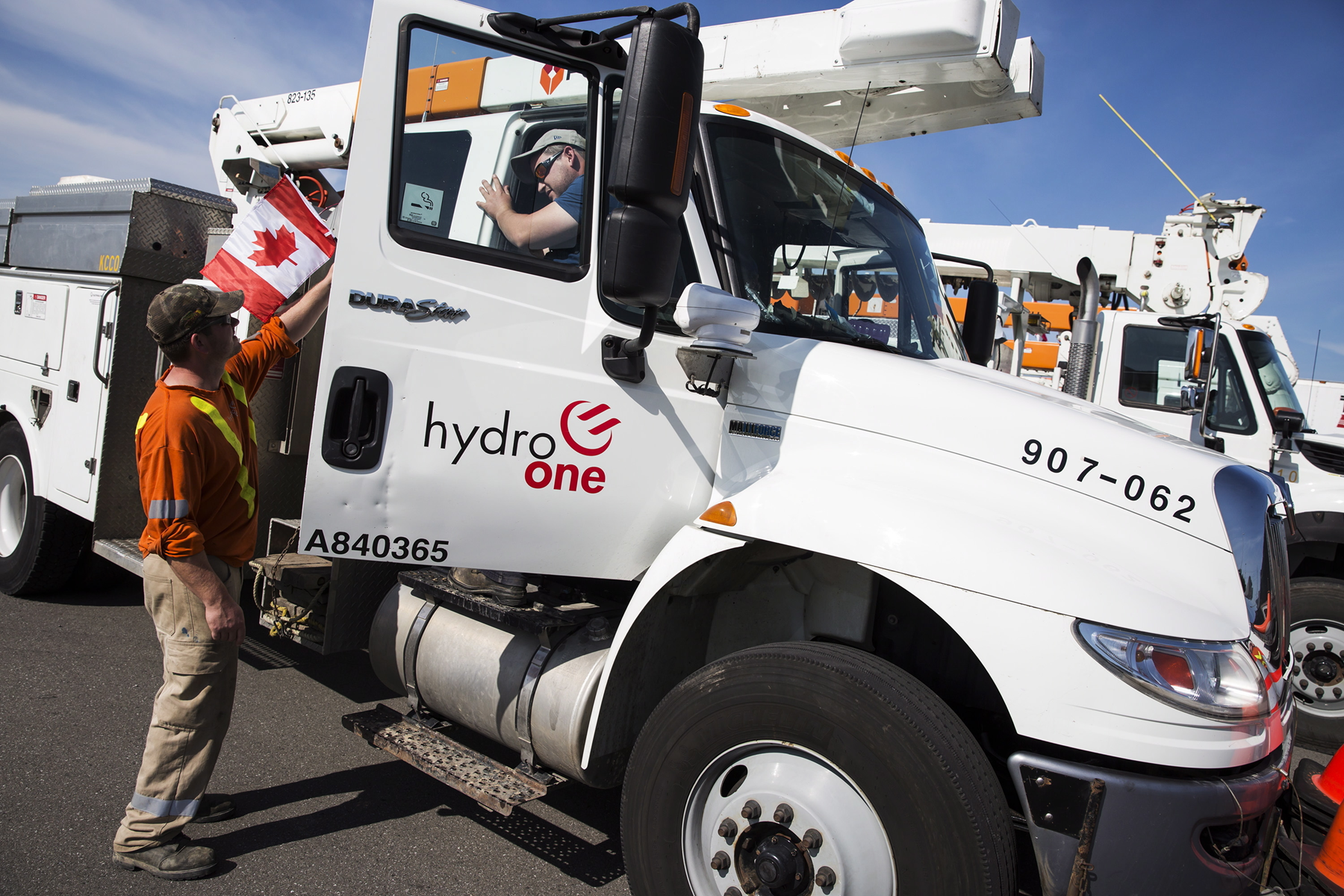
Of the close to 16 shareholder proposals that are up for a vote at five of the top six Canadian banks’ annual general meetings (AGMs) this year, most were around the environment, or climate change, including some on greenhouse gas emissions. Two of the issues were related to increased investment in fossil fuels.
At the time of this writing, the Toronto Dominion Bank (TD) has not yet made its proxy circular available.
InvestNow Inc. submitted a shareholder proposal to the Bank of Montreal (BMO) and Canadian Imperial Bank of Commerce (CM), asking that the banks make clear their commitment to continue to invest in, and finance, the Canadian oil and gas sector. And further that the banks conduct a review of any and all of their policies to ensure that there are none that have the effect of encouraging divestment from the sector.
InvestNow Inc. is a not-for-profit organization that challenges the divestment movement and advocates for investment in Canada’s oil and gas sector. The proposals were submitted by Gina Pappano, Executive Director of InvestNow.
Pappano said her proposal is also on the ballot at TD, and she has spoken to all three banks, and had good engagement with all. “My proposal was left off at RBC and Scotia on a technicality. But I will file with them next year. I chose to file because I felt that the engagement I had wasn’t enough, and I wanted an alternative view presented at the AGMs,” she said, adding that she will be presenting at all three AGMs.
“Last proxy season, asset managers rejected many proposals that they saw as not financially material, highly prescriptive or both. This proposal seems to tick both those boxes,” said Lindsey Stewart, director of investment stewardship research at Morningstar Research Services.
“[The proposal] doesn’t request any kind of reporting aimed at advancing shareholders’ understanding of the banks’ climate financing policies. It does, however, request that management make a somewhat vague statement of “commitment” to a fossil fuel sector that the banks already finance,” he added.
What’s the Argument for Increasing Investment in Fossil Fuels?
In its supporting statements, InvestNow points out that public policy framework and public conversation are both directed against investment in the oil and gas sector: “The result is chronic underinvestment in that sector," InvestNow says, "It asks that BMO and CIBC explicitly state their commitment to Canada’s oil and gas sector, and end or temporarily suspend support for policies like net-zero targets. The embrace of such policies - which have the effect of suggesting that oil and gas extraction, development, and use are not of essential value - sends a negative signal about investment in the sector,” it notes.
It also says that the banks should “Focus on investment in, lending to, and financing of the oil and gas industry to create more supply and reduce energy costs for Canadians and the world.” InvestNow says support for the sector is important because:
- Its wellbeing is essential to the wellbeing of Canadians, ensuring energy affordability and with it the affordability of everything else necessary to a reasonable standard of living for all in Canada.
- Its environmental performance is world-leading and steadily improving.
- Its expansion is increasingly important to address global concerns such as energy security and energy poverty; and
- The lack of investment in Canada means more investment in oil and gas sector development in other parts of the world with poorer environmental performance, poorer corporate governance, and serious human rights infringements.
BMO Says the Proposal is ‘Unnecessary’
BMO asked shareholders to vote ‘Against’ this proposal because “It is unnecessary in light of BMO’s commitment to be our clients’ lead partner in the context of our Climate Ambition, which supports the net zero strategy of the Canadian oil and gas sector, and the role of the board and management in setting the strategy of the Bank.”
The bank adds that climate strategy is an integral part of its overall strategy that is approved by the board and cannot be delegated to shareholders.
“Our approach has been to support our clients in their own decarbonization journey towards net zero, not to divest. Divestment strategies do not support real-world emissions reductions and could result in a disorderly net-zero transition that does not address the economic and social needs of the communities affected. We support our clients in their efforts to reduce emissions and anticipate that our clients will, over time, transition their businesses in support of a low-carbon economy,” it said.
CIBC Points to Its Work Towards Net Zero
CIBC also asks shareholders to vote ‘Against’ the proposal, pointing out that it has set a net-zero ambition for its operational and financing activities by 2050, and has released 2030 financed emissions targets for its high carbon-intensive portfolios: oil and gas and power generation.
The bank acknowledges that there are factors outside of CIBC’s control that will influence decarbonization globally across sectors and economies, such as the development of new technologies, industry-specific solutions, shifts in consumer behaviour, and the impact of geopolitical events.
It points out that in 2022, CIBC, “Provided industry-leading advice and capital markets solutions through our global Energy, Infrastructure, and Transition group within CIBC Capital Markets, to support clients, including those in the oil and gas sector, impacted by the shift in how the world produces and consumes energy, and develops infrastructure.” It also made significant progress towards its goal of mobilizing $300 billion in sustainable finance by 2030, and its commitment to invest $100 million towards climate tech and energy transition funds through Limited Partnerships.
What Does All This Mean?
To Pappano, success for the proposal would mean that the banks abandon Net Zero targets. “The banks have said that Net-Zero targets are not divestment, but I see them as a commitment to wipe out a profitable sector by 2050. To me, that is divestment. Divestment does not help reduce overall emissions. So why should the banks do it in Canada?” she said.
“It’s unsurprising that the banks’ boards feel such a statement is not necessary; shareholders are likely to feel the same way,” said Stewart. He noted that proxy voting has become a complex and contentious area, and shareholder proposals that appear to pull in different directions are becoming a recurring feature at shareholder meetings.
He adds that these proposals are a good example of that, and it shows how much attention is needed on the part of governance and stewardship professionals to weigh the benefits and drawbacks of each proposal and vote in line with the end-investors financial and sustainability objectives.
“It’s a delicate balancing act and it certainly isn’t getting any easier,” he said.
From the banks’ standpoint, though, as for any company, sustainability is one of many risks to consider. At Morningstar, we analyze all risks the same, with any risk that could affect our future cash flows and therefore our valuations all up for equal consideration.
Could this proposal be considered a sustainability risk? “In my view, it depends on how you define ‘ESG risk’. There are many ways people interpret this. If you are thinking about pure regulatory or political blowback, you create risks by investing in or not investing in fossil fuels, it all depends on who has political power at that point in time, and that can change,” said Eric Compton, Morningstar equity analysts covering the Canadian banks.
“If you're thinking about credit risks, for example, some may say it is risky to lend to industries that face structurally lower demand in the distant future; this is what I would call basic lending 101. All banks think about credit risks whenever they make loans, and there are no risk-free loans, and they account for this in how they price and structure the loan. Does lending to a cyclical industry like fossil fuels increase credit risk? Yes, as does all lending in some sense, and every industry has its own unique risk profile. What's more important is that the bank is pricing and structuring its loans correctly, and if they are, they actually create value for shareholders as it increases profitability,” he said.





















